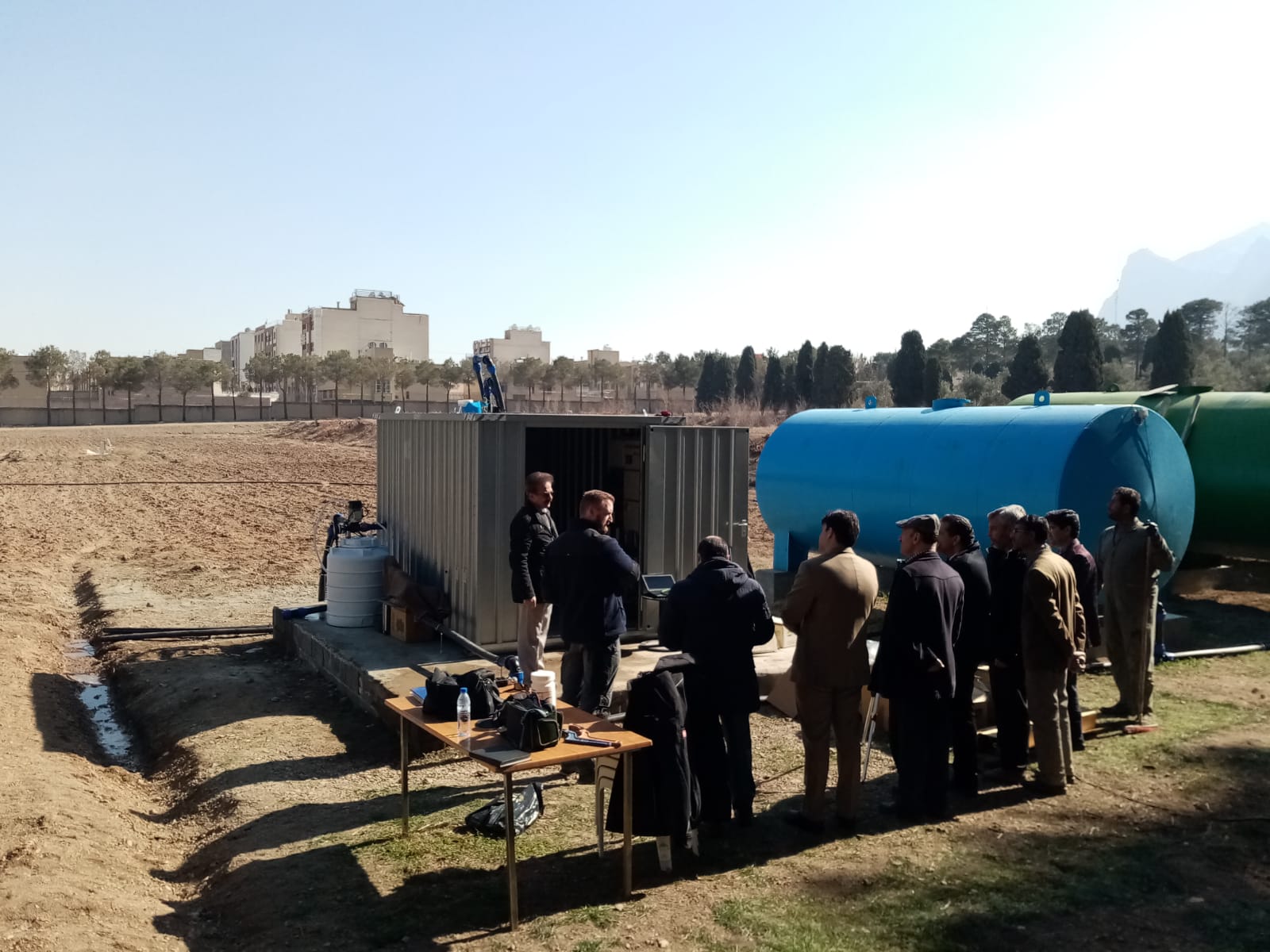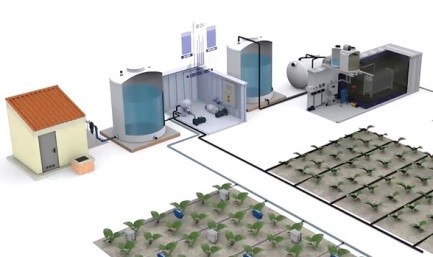Assessing Possibilities for Agricultural Transformation
Work Package: Decreasing Water Consumption by Applying Innovative Irrigation and Fertilisation Technology and Soil Conditioner
Challenges
During the last few years, many traditional irrigation systems in Iran have been replaced by sprinkler irrigation systems. To do so, funding programs were set up by the Iranian government. After the change, however, various problems became apparent: due to hygienic issues (release of aerosols), some crops could no longer be cultivated, and farmers just took the reduced water demand as an excuse to increase their cultivated area which in turn compensated the achieved savings.
Project Activities
Against this background the DOFISYS-technology was developed which pursues two strategies. First, the introduction and dissemination of specific irrigation technologie should enable a demand-responsive irrigation and fertilization using purified wastewater. This also prevents nutrients to be leached into the groundwater. And second, by using soil conditioners, abiotic and biotic site factors shall be improved to increase water efficiency and yields. The DOFISYS technique consists of interlinked units that communicate with each other: The optional treatment module for wastewater, the irrigation module with connected drip irrigation, which secures demand oriented fertigation considering all local conditions, the control modulethe and the monitoring module. The irrigation technology is chosen by the farmer. DOFISYS combines several benefits for the soil, crops and water resources like wastewater-reuse, avoidance of over-fertilization, over-irrigation or soil salinization, constant monitoring or online detection of irrigation and nutrient demand.

January 2020: The DOFISYS technology is set up.

DOFISYS schematic layout
Expected Outcomes
The agricultural water demand is expected to drop without decreasing the production output. Additional outcomes are an improved water supply, less water stress for crops, improved soil quality through the application of micro-nutrients, and improved nutrition of the plants through increased activity of micro-organisms.
Contact
Ulf Tscherner, abc advanced biomass concepts, ut@abc-loesung.de

